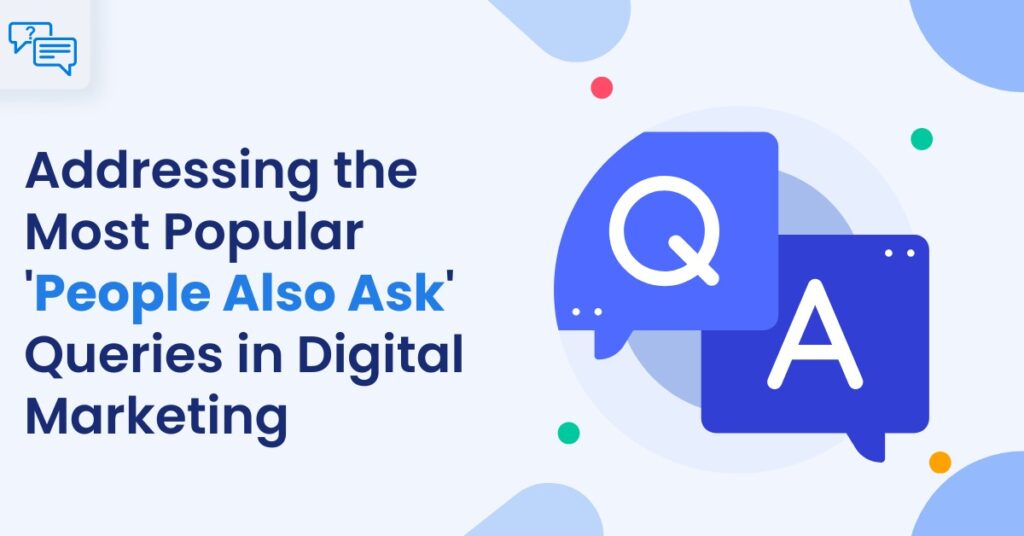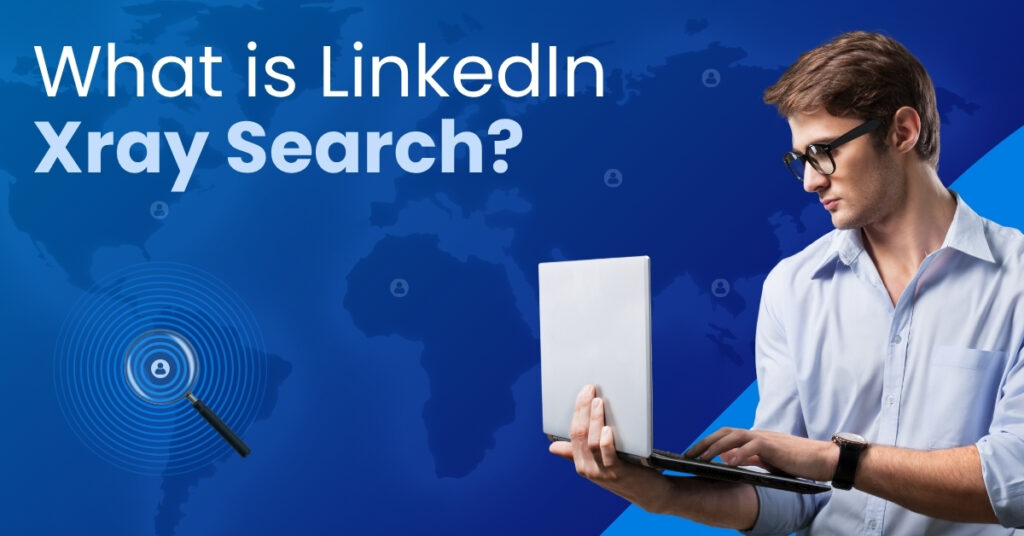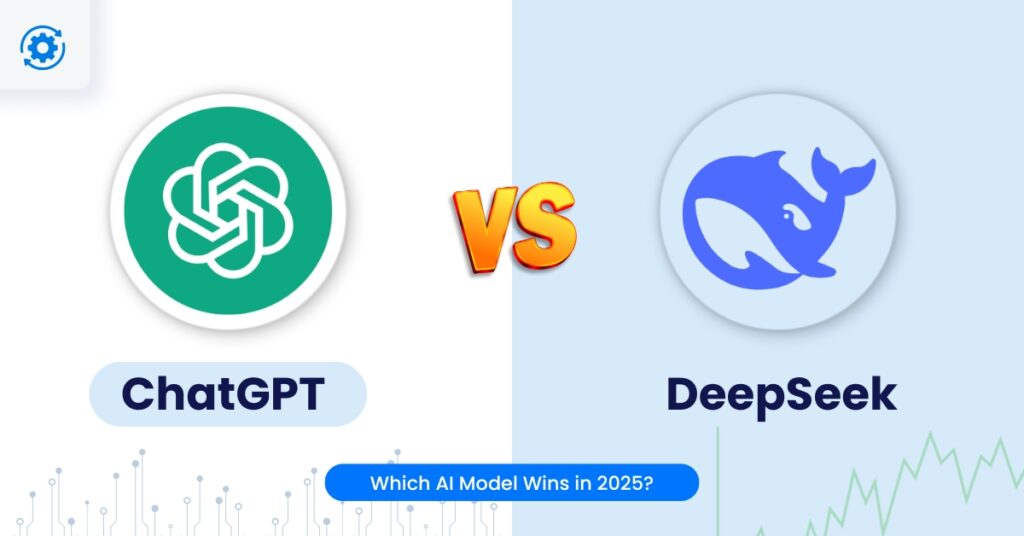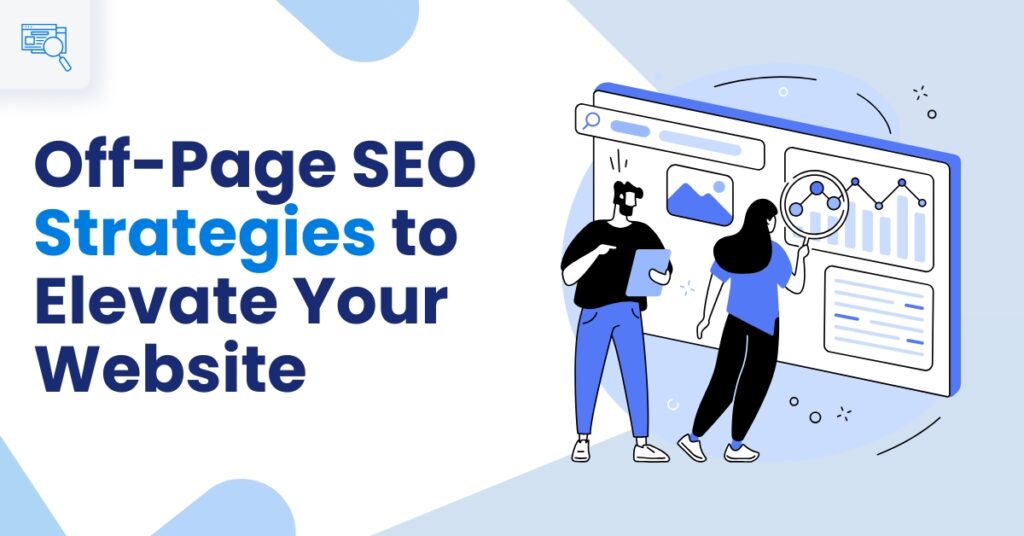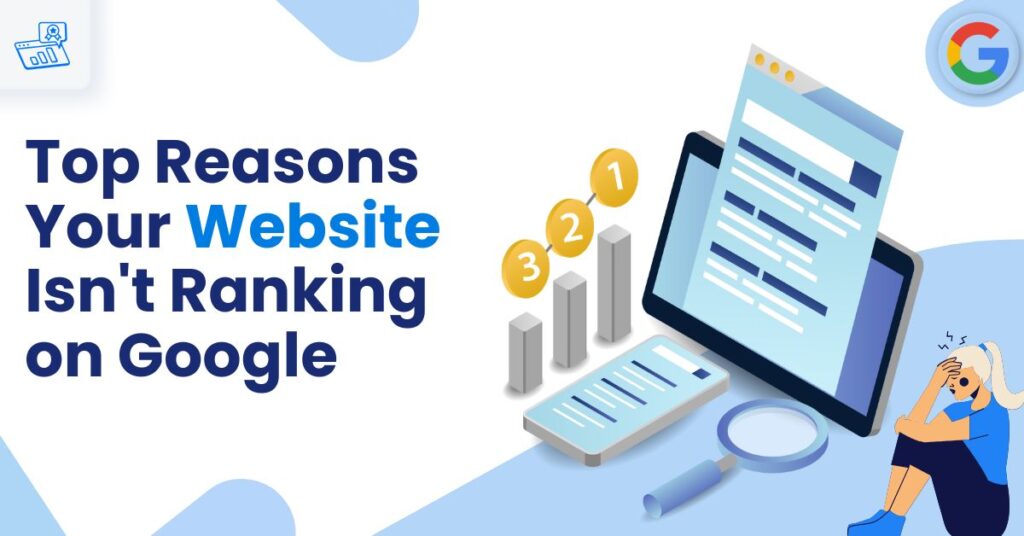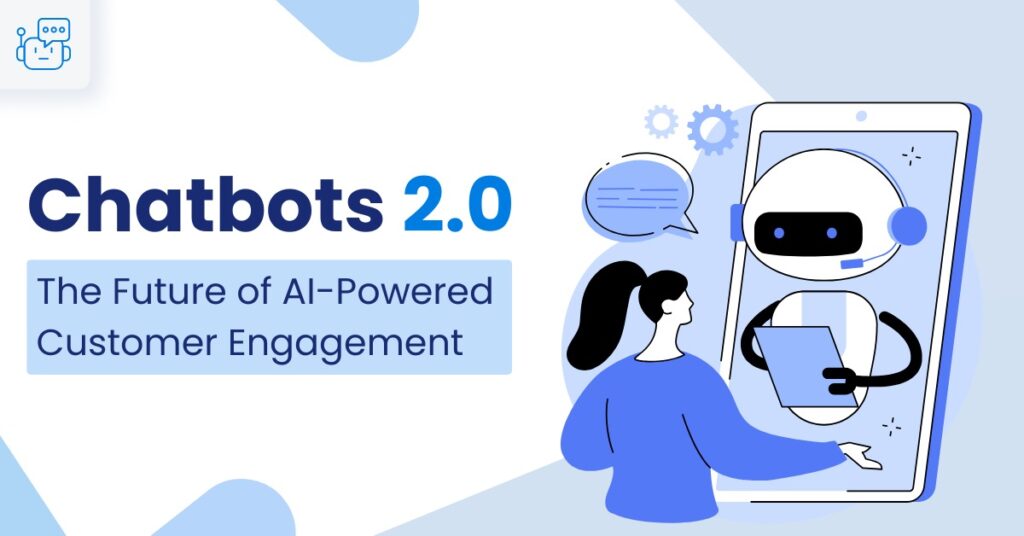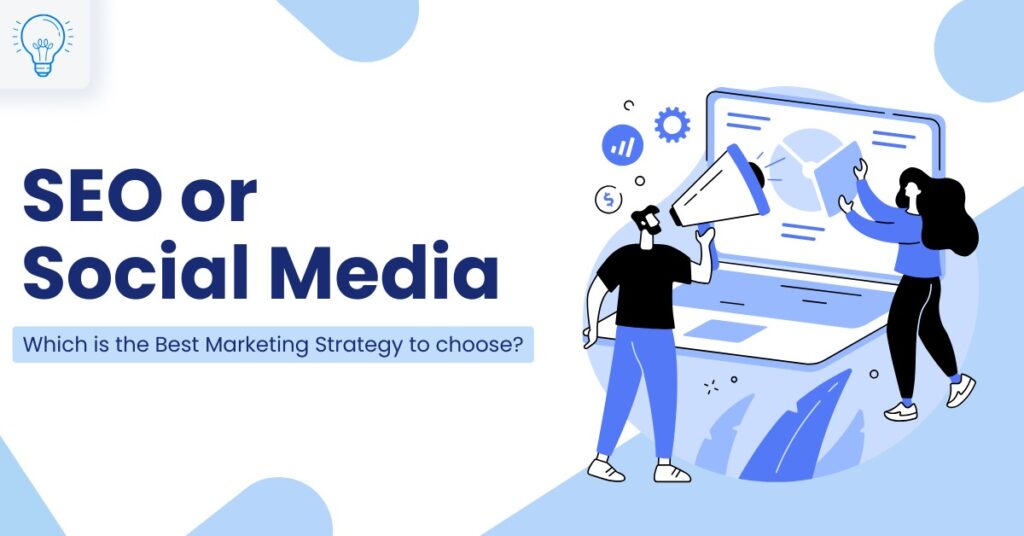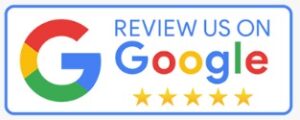In the dynamic and multifaceted world of digital marketing, businesses and marketers often find themselves seeking clarity on various concepts and strategies. With the rapid evolution of technologies and consumer behaviours, it’s natural to have questions about how to effectively engage audiences and optimise marketing efforts. This article delves into some of the most popular queries related to digital marketing, providing comprehensive answers that shed light on essential topics. By addressing these questions, we aim to empower businesses with the knowledge they need to enhance their digital marketing strategies and drive success.
List of 15 Popular ‘People Also Ask’ Questions in Digital Marketing;
1. What is digital marketing and why is it important?
Digital marketing involves using online platforms to promote and sell products or services. It encompasses various tactics, such as search engine optimization (SEO), email marketing, social media marketing, and content marketing. Digital marketing is crucial because it allows businesses to reach a global audience, engage directly with consumers, and measure campaign success in real-time. It is also cost-effective and enables targeted advertising, ensuring businesses maximise their marketing budgets.
2. What are the types of digital marketing?
Digital marketing is an umbrella term that includes various channels and strategies, such as:
- SEO (Search Engine Optimization): Increasing your website’s visibility on search engines to attract organic traffic.
- SEM (Search Engine Marketing): Running paid ads, such as Google Ads, to appear at the top of search results.
- Content Marketing: Creating valuable, relevant content to engage and educate your audience.
- Social Media Marketing (SMM): Using platforms like Facebook, Instagram, and LinkedIn to promote your brand and engage with customers.
- Email Marketing: Sending personalised emails to nurture leads and retain customers.
- Affiliate Marketing: Earning a commission by promoting another company’s products.
- Influencer Marketing: Partnering with social media influencers to promote your products to their audience.
Each type serves a different role, from attracting traffic to building relationships with customers.
03. How does SEO work in digital marketing?
SEO is a critical aspect of digital marketing that focuses on increasing a website’s ranking in search engine results pages (SERPs). It works by optimising various elements of a website, such as:
- On-page SEO: Optimising content, title tags, meta descriptions, and keywords on individual web pages.
- Off-page SEO: Building backlinks from other reputable websites to improve a site’s authority.
- Technical SEO: Enhancing a website’s structure, speed, and mobile-friendliness to help search engines crawl it efficiently.
The goal is to make the website more relevant and authoritative in the eyes of search engines, which ultimately increases organic (non-paid) traffic.
4. What is the difference between SEO and SEM?
SEO and SEM are both aimed at improving visibility on search engines, but they have different approaches:
- SEO: Focuses on increasing organic traffic by improving a website’s ranking through unpaid methods, such as optimising content and earning backlinks.
- SEM: Involves running paid ads (PPC – pay-per-click) on search engines like Google. Ads appear at the top of search results, and businesses pay each time someone clicks the ad.
While SEO is a long-term strategy that gradually increases organic traffic, SEM delivers immediate visibility but requires ongoing investment.
5. What are the top digital marketing strategies?
Successful digital marketing strategies include:
- Content Marketing: Creating valuable and relevant content to attract, engage, and convert your audience.
- SEO: Optimising your website to rank higher in search results and increase organic traffic.
- PPC Advertising: Running paid ad campaigns to drive immediate traffic to your website.
- Social Media Marketing: Engaging with audiences on social platforms to build brand awareness and loyalty.
- Email Marketing: Sending personalised messages to keep your audience engaged and drive conversions.
- Video Marketing: Leveraging the power of video to capture attention and increase engagement.
Combining these strategies can create a comprehensive marketing approach that enhances visibility, builds trust, and drives sales.
6. How does social media marketing help businesses?
Social media marketing allows businesses to connect with their audience, promote products, and engage in real-time conversations. It provides a platform for brands to build a community and establish trust with customers. Businesses can also use social media for targeted advertising, ensuring their promotions reach specific demographics based on location, interests, and behaviours. Additionally, social media helps increase website traffic, enhance brand visibility, and gather customer feedback through interactions and reviews.
7. What is content marketing in digital marketing?
Content marketing involves creating and sharing valuable, relevant content with the aim of attracting and engaging a target audience. This can take the form of blog posts, videos, infographics, podcasts, and social media updates. Unlike traditional advertising, content marketing focuses on building trust and providing useful information rather than directly promoting a product. A well-executed content marketing strategy establishes your brand as an authority in the industry, ultimately leading to increased sales and customer loyalty.
8. How do I measure the success of a digital marketing campaign?
The success of a digital marketing campaign is measured using various metrics, including:
- Conversion Rate: The percentage of visitors who complete the desired action, such as making a purchase or signing up for a newsletter.
- Click-Through Rate (CTR): The ratio of clicks to the number of views or impressions an ad or email receives.
- Return on Investment (ROI): The revenue generated compared to the cost of the campaign.
- Engagement: Measured by likes, comments, shares, and other interactions on social media platforms.
- Traffic Sources: Where your website visitors are coming from, such as organic search, social media, or email campaigns.
Regularly analysing these metrics allows businesses to optimise their campaigns and improve performance.
9. What are the benefits of email marketing?
Email marketing is a powerful tool because it allows businesses to reach customers directly in their inboxes. Key benefits include:
- Personalization: Emails can be tailored to each recipient’s interests and behaviour, making them highly relevant.
- Automation: Email sequences can be automated to nurture leads over time, saving businesses time and effort.
- Cost-Effectiveness: Email marketing has a high ROI because it’s inexpensive to execute yet highly effective in driving sales.
- Customer Retention: Regular emails keep your audience engaged and maintain long-term customer relationships.
10. How does PPC (pay-per-click) advertising work?
PPC is an advertising model where businesses pay for each click their ad receives. These ads appear on search engines, social media platforms, or websites based on specific keywords or user demographics. Advertisers bid on these keywords, and their ads appear in search results or on websites when users search for those terms. PPC delivers immediate traffic, making it a great strategy for promoting new products or services.
11. What is influencer marketing, and how does it fit into digital marketing?
Influencer marketing involves partnering with influential individuals on social media who promote your products to their audience. It’s particularly effective for reaching niche markets because influencers have built strong relationships with their followers. This strategy fits into digital marketing by amplifying your brand’s reach, increasing credibility, and providing authentic recommendations that resonate with consumers. It’s especially popular in industries like fashion, beauty, and tech.
12. What is the role of mobile marketing in digital strategies?
Mobile marketing involves reaching customers through mobile devices, such as smartphones and tablets. It’s an essential component of digital marketing because more consumers are using their mobile devices to browse, shop, and engage with brands. Strategies include SMS marketing, mobile app promotions, and optimising websites and emails for mobile use. Mobile-friendly content is crucial for ensuring a seamless user experience, which can increase engagement and conversion rates.
13. How can businesses benefit from local SEO?
Local SEO helps businesses improve their visibility for location-based searches. This is especially important for businesses that serve a specific geographic area, such as restaurants, retail stores, and service providers. Local SEO includes optimising Google My Business listings, gaining positive reviews, and ensuring consistency in contact information across all platforms. This strategy increases foot traffic to physical stores and helps businesses attract customers searching for services nearby.
14. What are the most effective social media platforms for marketing?
The best social media platform depends on your target audience and industry. Here’s a breakdown of some popular platforms:
- Facebook: Best for reaching a broad audience, especially for B2C businesses.
- Instagram: Ideal for visually driven brands in fashion, beauty, and lifestyle industries.
- LinkedIn: A professional platform suited for B2B marketing and networking.
- Twitter: Great for real-time engagement and sharing quick updates or news.
- TikTok: Popular among younger audiences, this platform is ideal for creative, viral content.
Choosing the right platform depends on where your audience is most active and engaged.
15. How do you create a digital marketing plan?
Creating a digital marketing plan involves the following steps:
- Set Clear Goals: Define what you want to achieve, such as increasing traffic, generating leads, or boosting sales.
- Identify Your Target Audience: Understand who your ideal customers are, their demographics, and behaviours.
- Choose Your Channels: Select the most appropriate platforms for reaching your audience (e.g., SEO, social media, email).
- Develop a Content Strategy: Plan and create content that will resonate with your audience and meet your goals.
- Set KPIs: Establish metrics for success, such as conversion rates, traffic, or engagement.
- Monitor and Optimise: Regularly track the performance of your campaigns and make adjustments as necessary to improve results.
Conclusion
Understanding digital marketing is key to navigating today’s competitive landscape. By exploring and answering common questions, we hope to equip businesses with the insights needed to make informed decisions and refine their marketing approaches. Whether you’re a seasoned marketer or just starting, these answers will help clarify the complexities of digital marketing and provide a solid foundation for building effective strategies. Embracing this knowledge will enable you to connect more effectively with your audience and achieve your business objectives in the ever-evolving digital space.
Leverage these insights to optimise your marketing efforts, or reach out to a digital marketing agency in Hyderabad for expert advice and to stay ahead of the competition in this rapidly changing field.

